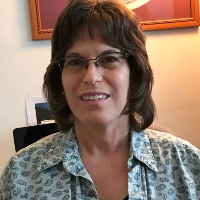Does Talking About Taboo Topics Bring Shame Or Liberation?
I have an unforgettable memory. I was at my best friend's house with my sister for a slumber party (the most audacious, wild discussions always happen at slumber parties for some reason).
We were 11 years old, the three of us, just before puberty hit. But for some inexplicable reason, we were all a bit precocious, at least as far as our bodies were concerned. In our awkward naive way, all three of us had experienced the awakening of our sexuality. We hardly had the words for it.
“I touch myself.”
“I touch myself all the time when I wash my face in the shower when I pull out an eyelash...”
“No, I mean down there. Where it feels good.”
“Really? Me too.”
“Yeah, so do I.”
“I get all out of breath and I sweat. Then I shake and my whole body vibrates.
“Me too!”
“Yup, I’ve been there.”
“I’ve never told a soul.”
“Me either.”
“Neither have I.”
“Well, now we have.”
Then we hunkered down and slid deeper into our sleeping bags, content to have shared our secrets with one another. Content because we knew it was safe.
According to Thomas Scheff, Ph.D. in his Psychology Today article “A Taboo on Sex and Shame,” the first studies on sex written by Kinsey and Masters and Johnson were met with disapproval and disdain but ultimately led to ground-breaking information and knowledge never before documented.
He notes that if they had used “inoffensive” language (the words love or intimacy rather than sex) that they may have caused less offense, but that their work would not have been further explored or taken seriously.
Mental illness, though there has been some forward movement, is another taboo topic that is still likely to bring on feelings of shame. In the 1950s my aunt experienced a postpartum psychosis after the birth of her first child, and it became a family secret. No one talked about it outside of the immediate family. And when it was talked about within the family, hushed tones were the norm.
Mental illness runs through my entire family, from my grandparent’s generation to my mother and aunt’s generation, and finally down to my own. I’ve learned to give voice to those hushed tones and now speak openly and publicly about my own story as an In Our Own Voice presenter for NAMI.
The journey wasn’t easy. I’ve experienced stigma in a very personal way. According to NAMI (National Alliance on Mental Illness) stigma is “when someone, or even you yourself, views a person in a negative way just because they have a mental health condition.
Some people describe stigma as a feeling of shame or judgment from someone else.” I’ve had jobs fall through, I’ve had potential friends decide not to be friends, I’ve had life coaches decline to work with me when I talked openly and honestly about my struggles with mental illness.
Some celebrities have risked going into the limelight and started to open the dialog about mental health. From an article in The Washington Post by Bethonie Butler, February 2020 edition, she writes about Demi Lovato, who has openly talked about her struggles with bipolar disorder, eating disorders, and substance abuse.
Said Katrina Gay, director of strategic partnerships at NAMI, “That honesty made Lovato a ‘pioneer’ when it comes to celebrities opening up about mental health.”
According to Butler’s article, the 2014 suicide of actor/comedian Robin Williams and even the openness of goth-pop singer Billie Eilish who spoke of her severe depression, further granted permission to talk about the subject with less judgment and stigma.
Mental Health organizations like NAMI and DBSA (Depression and Bipolar Support Alliance) work tirelessly to remove (or at least lessen) the stigma by offering classes and programs, support groups for those struggling with mental illness symptoms, family support groups, and the like.
Let’s give a big shout-out to the celebrities and organizations that have helped to remove shame from our discussions about mental illness. The safer people feel in talking about it, the more those who need it will reach out for help.
This is precisely what happened, according to an article entitled Taboo Topics Course Uses Dialogue to Break Through Barriers on the Western Michigan University News website. Senior Claire Hernandez listened to her friend disclose that she was thinking of taking her life.
Evidently, Dr. Mark Orbe’s course on Taboo Topics had a big impact on Claire. Fortunately, she was near completion of Orbe’s course when she found out about her friend’s suicidal intentions. That made a big difference in how she was able to listen and respond to her friend in her time of need.
Dr. Orbe’s Taboo Topics class encourages discussion about topics that are typically avoided in North American culture. Family secrets, religion, race, death, interracial relationships, kinky sex, and masturbation were just some of the topics that were discussed.
Among the benefits of taking the class (in addition to saving a life), the students experienced a strong feeling of closeness and connection with each other. (Much like those awkward 11-year-olds I hold dear to my heart that I told about at the beginning of this piece).
The students and instructor also found that the sharing of taboo topics in a safe environment can break down barriers that exist between people with strongly held convictions and beliefs. In discussion-oriented activities, students disclosed topics they had never told anyone before.
Personal revelations led to feelings of mutual respect and understanding, even when talking about opposing viewpoints. The course’s main purpose is to be able to understand different viewpoints about certain forbidden topics, and in the process, "be transformed.”
The course is partly based on the teachings of Paulo Freire, a philosopher, and educator from Brazil, who has influenced other teachers the entire globe over. Freire thought that encouraging students to question authority and conventional meaning is essential to social justice and the one path to liberation.
According to instructor Orbe, discussing a people’s most taboo of subjects can encourage critical thinking for broader use, and nurture the desire to understand diverse perspectives. This is particularly essential in our recently polarized society where differences in beliefs are creating much conflict.
Imagine the implications of these ideas. All of our warring groups of people could sit down to tea together, in a manner of thinking. Democrats and Republicans. The Wealthy and the Poor. People of Color and White Supremacists. Jews and Anti-Semites. Pro-Lifers and Pro-Choicers. Homophobes and LGBTQers. And countless others. Imagine them all linking arms together. Imagine all the people, living life in peace…
Let’s thank Kinsey and Masters and Johnson. Demi Levato and Billie Eilish. NAMI and DBSA. Professor Mark Orbe and educator Paulo Freire. And all the nameless pioneers who work tirelessly and accept the risk to create a better humanity.
Open the dialog and liberate yourself. Talk about sex and mental health and shame. Talk about hate crimes. Prejudice. Homophobia. Genocide. Break down barriers. Create world peace.

Opinions and Perspectives
I'm grateful for the pioneers who helped make these conversations possible.
The example of Dr. Orbe's class shows how structured environments can facilitate healing conversations.
The connection between personal liberation and social change is so important.
This article perfectly captures why we need to keep having difficult conversations.
Sometimes the most meaningful conversations start with someone being brave enough to share first.
The mention of Robin Williams really hit home. His death changed how we talk about mental health.
These conversations are especially important for young people figuring themselves out.
I love how the article connects individual healing with collective transformation.
The article really highlights how personal sharing can lead to broader social change.
I wonder how different my life would have been if I'd had these conversations earlier.
This reminds me of conversations I wish I could have had when I was younger.
The connection between personal liberation and social justice is really powerful.
As someone who struggled with mental health, I can confirm that open dialogue makes a huge difference.
I found myself nodding along with the section about creating understanding between different groups.
The historical perspective on mental health stigma is eye-opening. We've come so far but still have far to go.
This made me think about how many people suffer in silence because they're afraid to speak up.
The part about students finding connection through vulnerability really resonated with me.
Interesting how shame and stigma often go hand in hand. Breaking one often helps break the other.
That story about Claire helping her suicidal friend shows why these discussions matter in real life.
I appreciate how the piece acknowledges both benefits and risks of discussing taboo topics.
The article really captures how sharing our struggles can create powerful connections.
This reminds me of my own experiences in therapy. Being able to speak freely about taboo topics was transformative.
Sometimes I wonder if social media has made these conversations too casual. There should still be some boundaries.
Those early research studies on sex were so crucial. Amazing how much courage it took just to study human sexuality.
The section about breaking down barriers between opposing groups gave me hope. We need more of that today.
Honestly, I find it hard to be this open about personal matters. Not everyone feels comfortable sharing everything.
As a teacher, I see how important safe spaces are for students to discuss difficult topics.
The contrast between past stigma and current openness is striking. We've come far but still have work to do.
My family never discussed mental health either. Reading this makes me want to start those conversations.
The mention of Paulo Freire really resonated with me. His ideas about questioning authority are so relevant today.
True liberation comes from understanding ourselves and others deeply. These conversations are essential for that.
I love how the article starts personal and expands to broader social implications. Really effective writing.
The article makes some good points but seems to oversimplify complex social dynamics.
Speaking as someone who works in mental health, I see daily how damaging stigma can be. Open dialogue literally saves lives.
Shame thrives in silence. Every time we speak our truth, we help someone else feel less alone.
The influence of celebrities speaking out about mental health has been huge. When I heard Demi Lovato's story, it helped me seek help.
I worry sometimes that we've gone too far the other way. Not everything needs to be discussed publicly all the time.
Interesting how the article connects childhood innocence with academic discourse on taboo topics. Both spaces allow for authentic exploration.
The work that NAMI does is incredible. Their support groups saved my life when I was struggling with depression.
I actually participated in a similar discussion group and it was life-changing. Being able to speak freely without judgment helped me process so many things.
That comparison between those childhood friends and Dr. Orbe's students really struck me. Trust and safety are so crucial for authentic connection.
While I support open dialogue, we need to be mindful of appropriate contexts and audiences for discussing sensitive topics.
My grandmother also struggled with postpartum depression in the 1950s and our family never talked about it. The stigma around mental health has caused so much unnecessary suffering.
The section about Dr. Orbe's class is fascinating. I wish more universities offered courses like this to help break down barriers between people.
I disagree that talking about everything openly is always beneficial. Some topics are taboo for good reasons and maintaining certain boundaries helps society function.
The part about the 11-year-olds sharing their experiences honestly brought tears to my eyes. We all need that safe space to be vulnerable.
Such a powerful article. I can really relate to those childhood moments of sharing secrets and finding validation.
